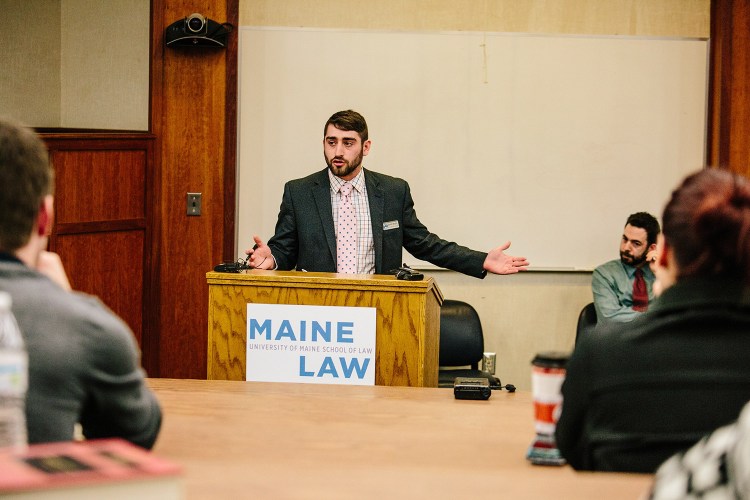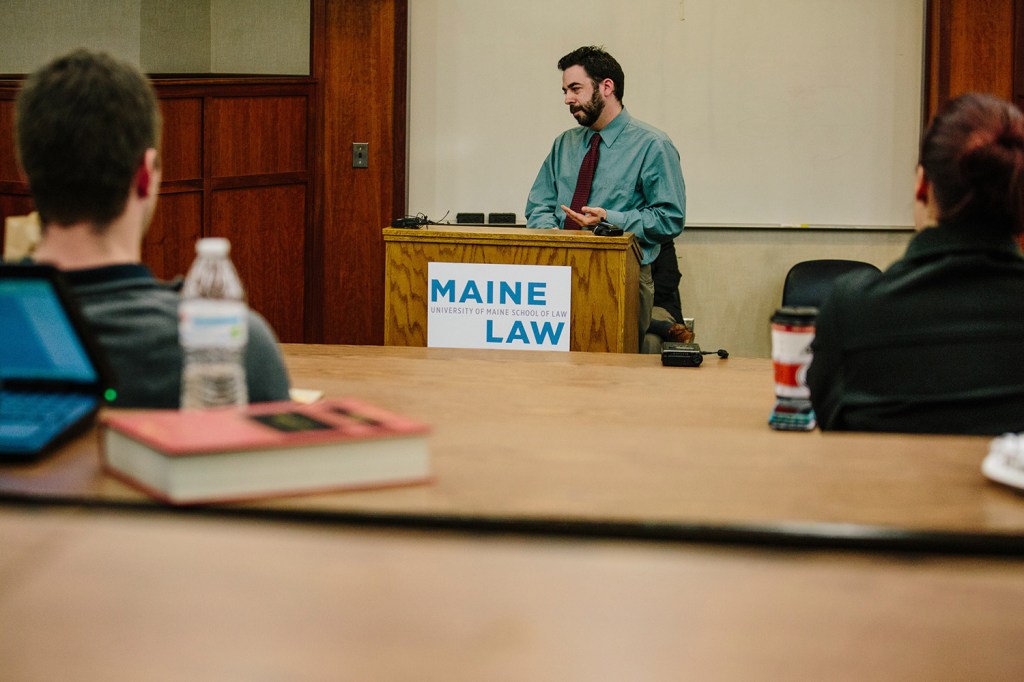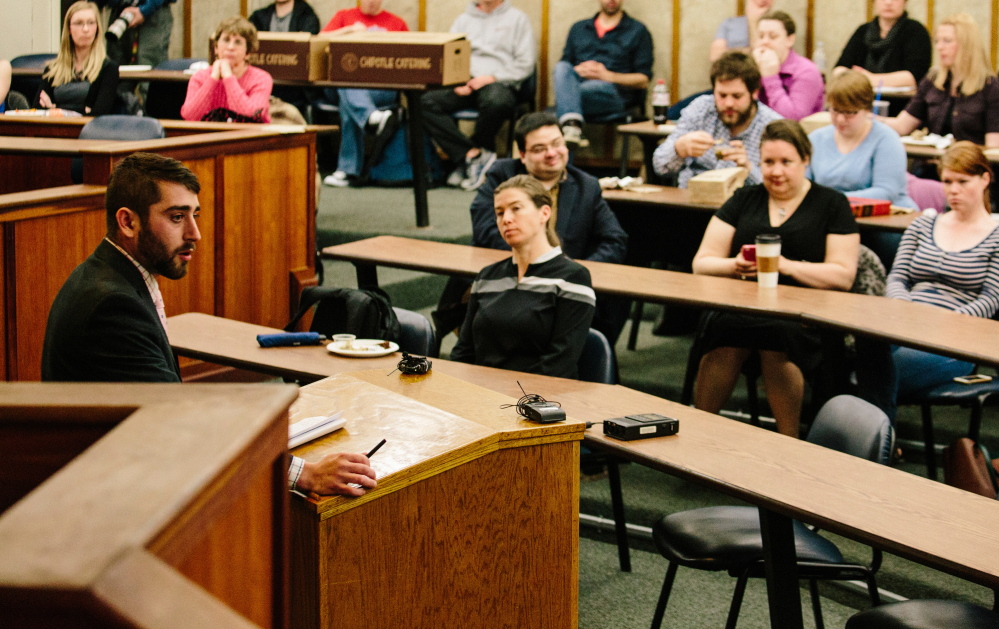A debate Monday by two activists arguing opposite sides of whether to legalize marijuana in Maine left some law students in the audience at the University of Maine School of Law in Portland with more questions than answers.
On one side of the debate, David Boyer of the Campaign to Regulate Marijuana Like Alcohol argued that legalizing marijuana for adults would allow for regulation of a drug that many already use, make it harder for those under 21 to obtain, and provide a legal alternative to alcohol.
“Marijuana has never killed anyone. It’s less addictive, less toxic than alcohol. Those are the facts. They can’t be disputed,” Boyer said.
“It’s illogical to punish adults who would rather use a safer substance. This isn’t about kids.”
On the other side, Scott Gagnon of Smart Approaches to Marijuana argued that the tax revenues generated by regulating the sale of marijuana wouldn’t offset the public health problems it would cause.
“When kids hear it’s no big deal, that it’s safer than alcohol, they are going to be inclined to use it,” Gagnon said. “When they hear ‘it’s safer than alcohol, it’s safer than alcohol’ over and over again, they assume it’s safe.”
Boyer and Gagnon engaged in a lively back-and-forth during an hourlong lunch debate at the law school, hosted by the Maine Federalist Society and moderated by the group’s president, Mike Scully.
They debated whether marijuana is a gateway drug to other drug use, whether the prohibition of marijuana is a repeat of the alcohol prohibition of the 1920s and whether legalization of marijuana in Colorado has been a boon or bane to society.
But while the two sides clearly stated their opposing positions, many of the law students weren’t looking for a partisan policy debate as much as they were hoping for a legal debate that would more likely come up in their future professions.
“I didn’t change my mind,” said 28-year-old Elizabeth Frazier, who is now in her third and final year at the law school. “I was pro-legalization going in, and I still am, but I feel we have a lot of unanswered questions.”
Frazier said Boyer and Gagnon didn’t talk about the “pink elephant in the room” – that marijuana is still illegal federally.
Federal authorities can still prosecute offenders, even if state authorities legalize the drug. And federally insured banks cannot loan money to commercial marijuana sellers or allow them to deposit proceeds.
“I really feel like they dodged the federal question. We’re lawyers, that’s what we talk about,” Frazier said.
Casey Paige, a 26-year-old law student in his second year, said the two debaters didn’t delve into the problem that will face Maine voters next year when they are asked to decide among competing plans to legalize marijuana.
“My problem was, even though I’m pro-legalization on a political level, there’s an issue of three different proposals. There was no information on the other proposals,” Paige said.
There are currently two ballot initiatives by two political action committees – Legalize Maine and the Campaign to Regulate Marijuana Like Alcohol – aimed at bringing the question of whether to legalize marijuana in Maine before voters in 2016. There is also a third effort before the Legislature to legalize marijuana.
In the legislative effort, Rep. Diane Russell and Rep. Mark Dion, both Portland Democrats, have each proposed their own plans that could emerge as a single bill.
Paige said that as a law student, he was also looking for insight into what he as a lawyer could advise a future client, because he could not advise a client to break a federal law or hide illegal marijuana proceeds from federal authorities.
“Because we’re in a law school, we would have liked to have seen those things debated,” Paige said.
Copy the Story Link
Send questions/comments to the editors.





Success. Please wait for the page to reload. If the page does not reload within 5 seconds, please refresh the page.
Enter your email and password to access comments.
Hi, to comment on stories you must . This profile is in addition to your subscription and website login.
Already have a commenting profile? .
Invalid username/password.
Please check your email to confirm and complete your registration.
Only subscribers are eligible to post comments. Please subscribe or login first for digital access. Here’s why.
Use the form below to reset your password. When you've submitted your account email, we will send an email with a reset code.